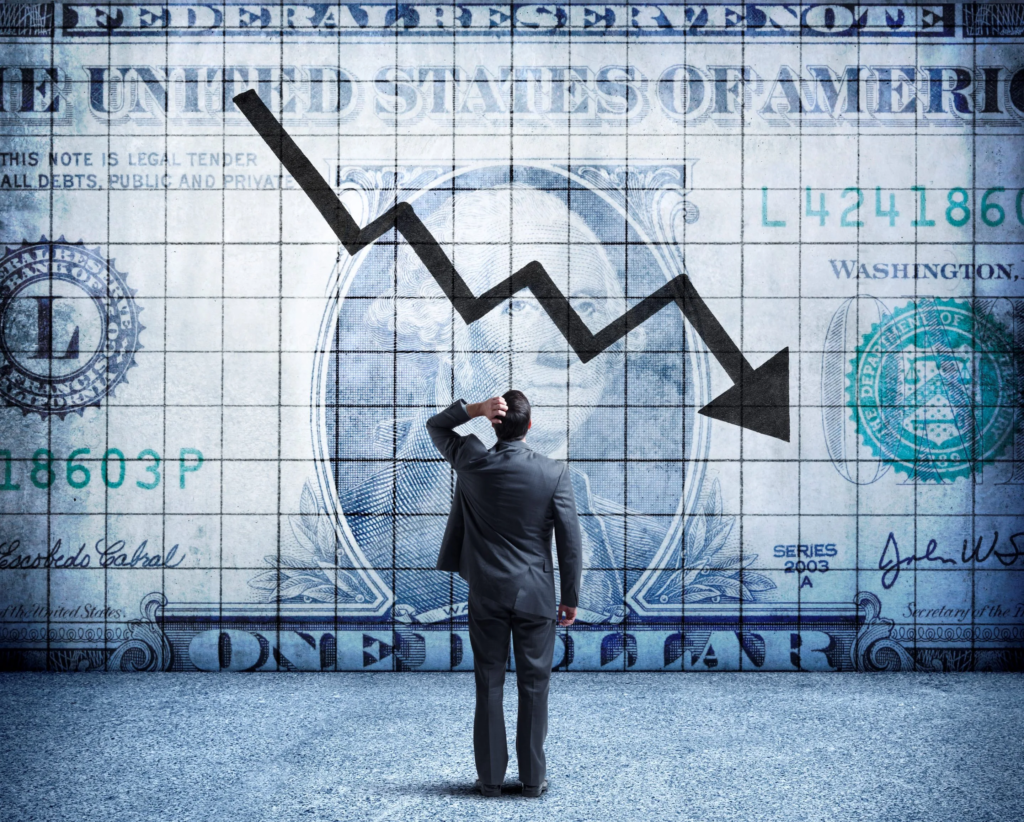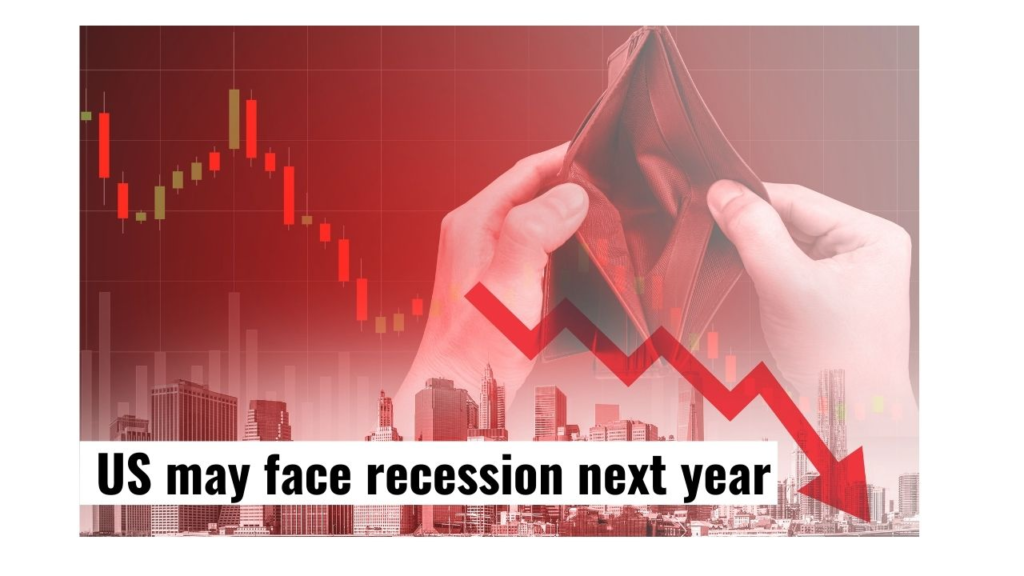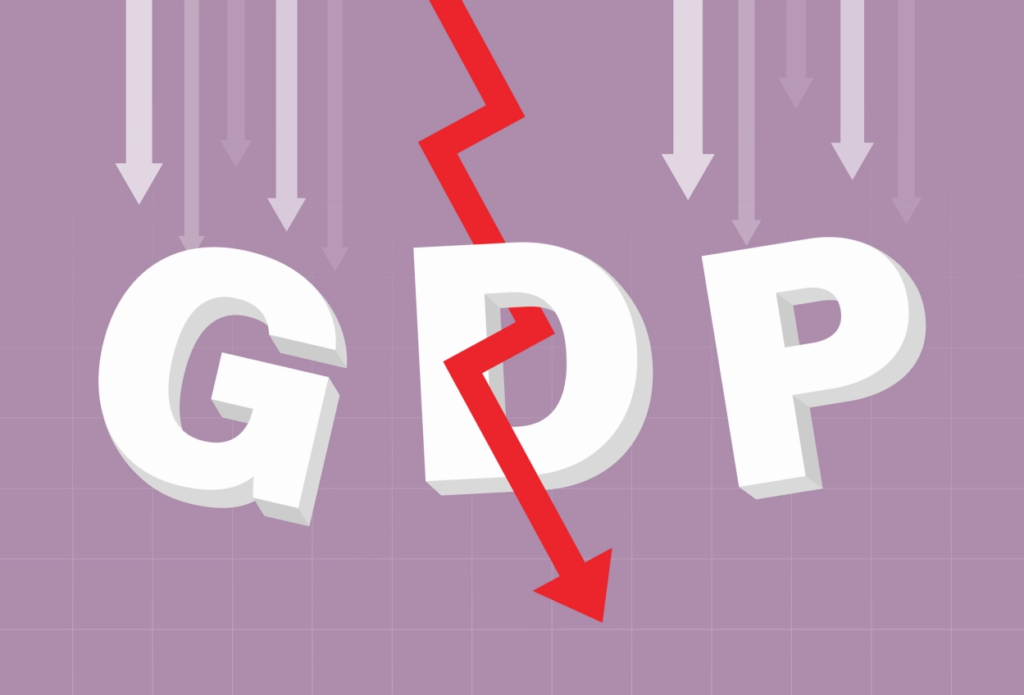
The U.S. economy shrank by 0.9% over the past three months. The economy has downsized for the second consecutive quarter. Gross domestic product, or GDP, fell by 1.6 % in the first quarter.
Although two consecutive quarters of negative growth are frequently regarded as a recession, there is no official definition of the term. The National Bureau of Economic Research, a nonprofit, unbiased organization, determines when the American economy is experiencing a recession. That decision is made by an NBER committee of eight economists, and it is based on a variety of factors.
The White House has resisted labeling the current state of the economy as a recession. It is aware of the impact the economy will have on the midterm elections, without a doubt.
President Biden cited record job growth and foreign business investment as signs of strength in the economy. “That doesn’t sound like a recession to me,” Biden concluded.
If there are so many jobs being created, how can there be a recession?
In a recent appearance on NBC’s Meet the Press, Treasury Secretary Janet Yellen said that although two consecutive quarters of negative growth are often regarded as a recession, the current economic situation is distinct.
“When you’re creating almost 400,000 jobs a month, that is not a recession,” she said.
However you look at it, the economy has weakened.
According to the GDP report, businesses have made retrenched. Without a question, as interest rates have risen due to the Federal Reserve, borrowing has grown more expensive. Therefore, there is less money available for investment. The main concern is whether or not that will begin to harm employment growth.

Retailers were spending less because they had a surplus of stock to get rid of. Additionally, housing, which had been extremely hot during the pandemic, is now beginning to cool with mortgage rates rising.
There were some positive aspects, though. People were indulging themselves by going to restaurants and traveling as wages continued to grow. Total income increased.
However, as the Fed continues to aggressively raise interest rates to combat excessive inflation, recession fears have significantly increased.
In addition, the economic data has been inconsistent. Prior downturns, for instance, were preceded by the loss of jobs in the economy. But as Yellen pointed out, the American economy has been creating new jobs every month.
“This is not an economy that’s in a recession,” Yellen said. “A recession is broad-based weakness in the economy. We’re not seeing that now.”
Yellen also mentioned how consumer spending has continued to be strong and she emphasized positive information regarding American credit quality.
What are the Markers of Recession?
The NBER says the “traditional definition” of a recession is “a significant decline in economic activity that is spread across the economy and that lasts more than a few months.”
The employment market has continued to show signals of strength, and employment is taken into consideration by the group. The economy added 372,000 jobs in June, keeping the unemployment rate unchanged at 3.6%, which is close to its pre-pandemic level.

“I don’t think the NBER would look at the data right now and say the economy is in a recession,” says Michael Gapen, the chief U.S. economist at Bank of America Securities.
However, it’s uncertain how much it will matter to Americans whether or not the current economy fits a precise, very technical definition.
The Economy is already Slowing in Some Areas
Everyone can agree that the economy is slowing, prices are growing faster than they have in years, and the housing market has started to cool as a result of the Fed’s aggressive interest rate increases. The central bank increased interest rates by additional three-quarters of a percentage point on Thursday.
The headline figure on Thursday, which will show how much the economy grew or shrank on a percentage basis, is expected to draw the most attention, but economists stress the importance of examining the underlying data.
“It’s the pieces of the puzzle that matter when you’re looking at GDP,” says Michelle Meyer, U.S. chief economist at the Mastercard Economics Institute.
We’ll check to see, among other things, if household spending, which makes up 70% of all economic activity, keeps up with inflation.

However, as noted by Fed Chair Jerome Powell and other officials, sentiment and expectations are important at a time like now, when there is so much uncertainty and so many Americans are suffering economically. The goal for the economy is also to avoid losing too many jobs.
“I think a lot of it comes down to jobs,” says Meyer. “Whether you have a job. Whether you expect to keep your job. And what that might mean for your future path of income.”
Read More:
6 Effective and Genuine Ways to Save Money while Travelling